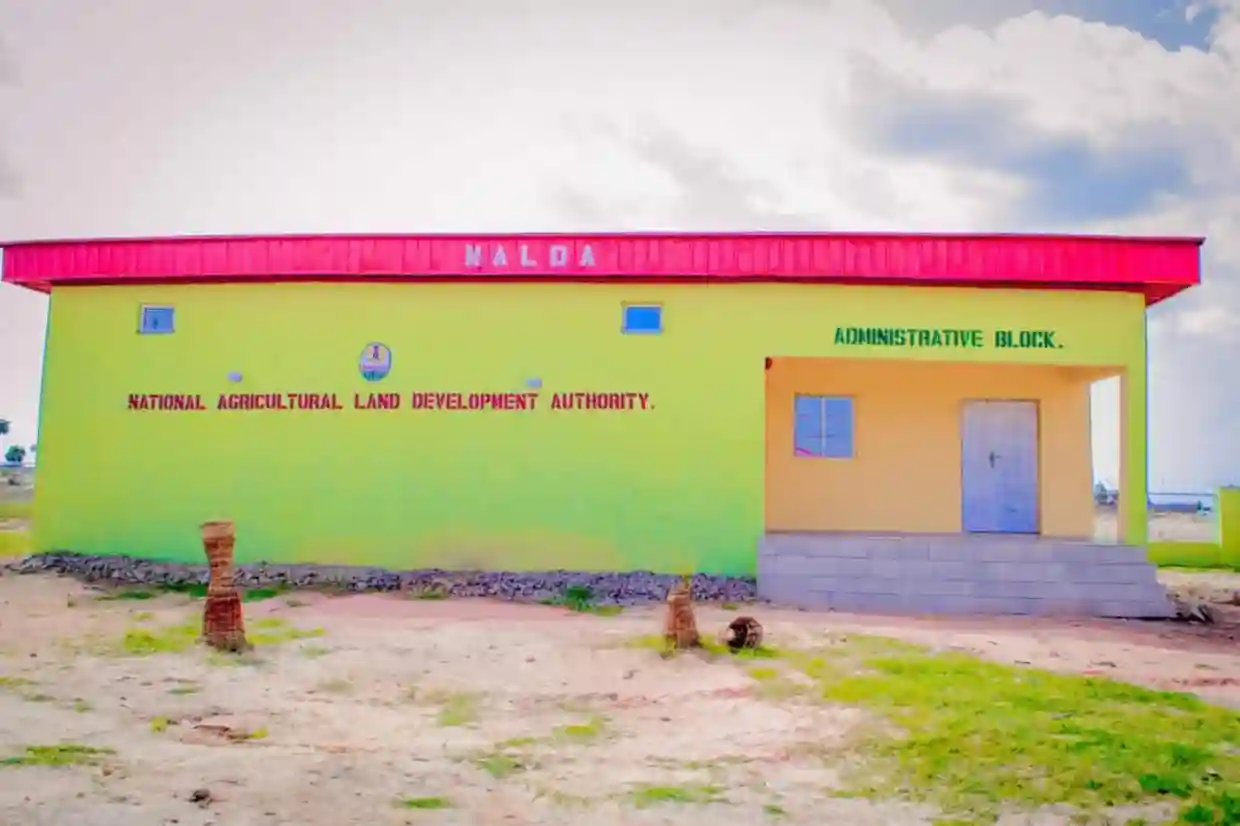The National Agricultural Land Development Authority (NALDA) has launched a nationwide greenhouse farming initiative aimed at transforming vegetable production, empowering young people, and supporting women farmers across Nigeria.
During an inspection visit to the University of Abuja greenhouse site, NALDA’s Executive Secretary, Dr Cornelius Adebayo, explained that the project, approved by President Bola Tinubu, seeks to end Nigeria’s dependence on seasonal vegetable farming and close the distribution gaps that often lead to food shortages and high market prices.
“The greenhouse project is in three phases because we realised that one of the major problems we have with vegetables is that we depend too much on seasonal production. We approached Mr President for approval, which he graciously gave, for mega high-tech greenhouses across the country,” Dr Adebayo said.
The initiative includes the construction of three temperature-controlled high-tech greenhouses in key locations across the country, as well as net-house greenhouses in Abuja and Ogun State. At the Giri site in Abuja, NALDA has already completed 20 units and a nursery, while 30 units with a nursery are being set up in Shagamu, Ogun State. Each site features packing houses, cold storage facilities, and solar-powered energy systems to support efficient and sustainable operations.
According to Dr Adebayo, the project will make fresh vegetables available closer to consumers in major cities like Abuja and Lagos, reducing transport costs and post-harvest losses that affect farmers and market prices. He added that the facilities will be managed by young farmers, who will each receive two net houses to operate independently as agripreneurs under NALDA’s supervision.
“Most of these facilities will be handed over to young people who understand how to run them. The idea is to engage youth productively while ensuring food availability,” he said.
Beyond youth empowerment, NALDA is focusing on supporting women farmers through open-field vegetable cultivation. Under the second phase of the initiative, the Authority plans to establish at least 10 hectares of open-field vegetable farms in every federal constituency, where 100 women farmers per site will cultivate pepper, tomatoes, and leafy greens.
“We’re providing land clearing, irrigation, packing houses, and cold storage to support them,” Dr Adebayo explained. He added that land preparation and irrigation work are already underway in 16 pilot locations, including Cross River, Taraba, Plateau, and Gombe States.
The Abuja greenhouse farm is expected to become fully operational by December 2025, while other sites will follow in early 2026. NALDA has started registering farmers who will manage the greenhouse structures and will monitor all operations to ensure they meet global agricultural best practices.
Addressing concerns about the technology, Dr Adebayo clarified that greenhouse farming is safe and organic. “It’s just atmospheric condition control — very safe and cleaner. Plants simply need the right environment to thrive, and that’s what we’re providing,” he said.
The NALDA Executive Secretary also stressed that the project is not a loan or credit programme but a government-backed empowerment effort designed to eliminate infrastructural challenges that often hinder farmers’ productivity.
“Government is not in the business of business; our job is to create the environment for business to thrive,” he added.
Each of the 20 greenhouses in Abuja will be managed by 10 young farmers, with plans to expand the number to 50 units each in Abuja and Shagamu. NALDA has also called on state governments and local communities to provide more land for the expansion of the programme.
Dr Adebayo further stated that by organising vegetable production into structured clusters and coordinating offtake arrangements, NALDA aims to stabilise prices and promote urban agriculture close to Nigeria’s biggest cities.
“Outside every major city in the world, you see clusters of greenhouses supplying that city. As the giant of Africa, we should do no less. Our goal is to ensure fresh vegetables are available and affordable for Nigerians year-round,” he said.
The greenhouses will produce tomatoes, peppers, avocados, and other vegetables, while also providing agricultural training opportunities for young Nigerians through partnerships with universities and agricultural institutions.

